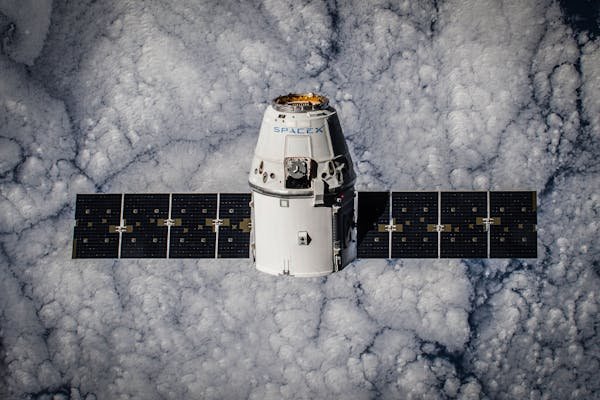As Starlink seeks to launch in South Africa, Africa’s largest telecommunications service provider, MTN, is exploring partnerships with low Earth orbit (LEO) satellite providers to bring internet to rural and remote residents of South Africa. MTN Group CEO Ralph Mupita announced this today.
Mupita told journalists on a conference call that the motivation for the option was to keep customers and businesses connected at all times. “We will need to adopt satellite as an additional form of technology,” he said.
He added that the company is conducting proofs of concept with several LEO satellite operators for possible partnerships. “We are looking at several products and would be happy to resell some of them to some customers in certain countries through our corporate business,” he added.
LEO satellites typically operate at altitudes of 300 to 2,000 km above the Earth’s surface, which gives them the advantage of cheaper and more efficient transmissions than satellites in higher orbits. They would provide high-speed internet to areas where terrestrial communications infrastructure is difficult and expensive to establish.
MTN South Africa is not the only country looking for an alternative LEO. South African rival Cell C has also announced similar plans. As a reminder, Vodacom announced a partnership with Amazon’s LEO satellite project Kuiper last year. But the CEO insists the company is poised for profitable development.
“We are aware of the challenges that will arise as fixed and mobile operators compete with LEO satellites over time, so we are taking precautions to safely establish our operations in key markets,” he said.
Rapid Expansion of Starlink
Starlink is run by billionaire Elon Musk and has more than 500,000 users worldwide. Last week, the internet company launched its services in the West African country of Chad. Starlink’s launch in Chad comes two weeks after its launch in Zimbabwe. This makes the service available in over 122 countries worldwide and 18 in Africa, making it the fastest growing internet service.
The internet company has also launched operations in Botswana, South Sudan and Ghana in the past two months.
However, Starlink faces regulatory challenges in South Africa, which is currently one of the few countries in the world without a set commissioning date. In April, it was reported that Starlink would not operate in South Africa because it did not want to share ownership with locals, as required by the government. Starlink refused to comply with the country’s BEE (Black Economic Empowerment) requirement to donate 30% of its assets to historically disadvantaged locals. Furthermore, the Independent Communications Authority of South Africa (Icasa) and the Minister of Communications have not issued any new telecommunications licenses for about 13 years. The report said that Icasa had not received a license application from Starlink, nor had it contacted the Department of Communications and Digital Technology (DCDT). “It is most important to note that all license applications must go through Icasa and not DCDT,” they said.


